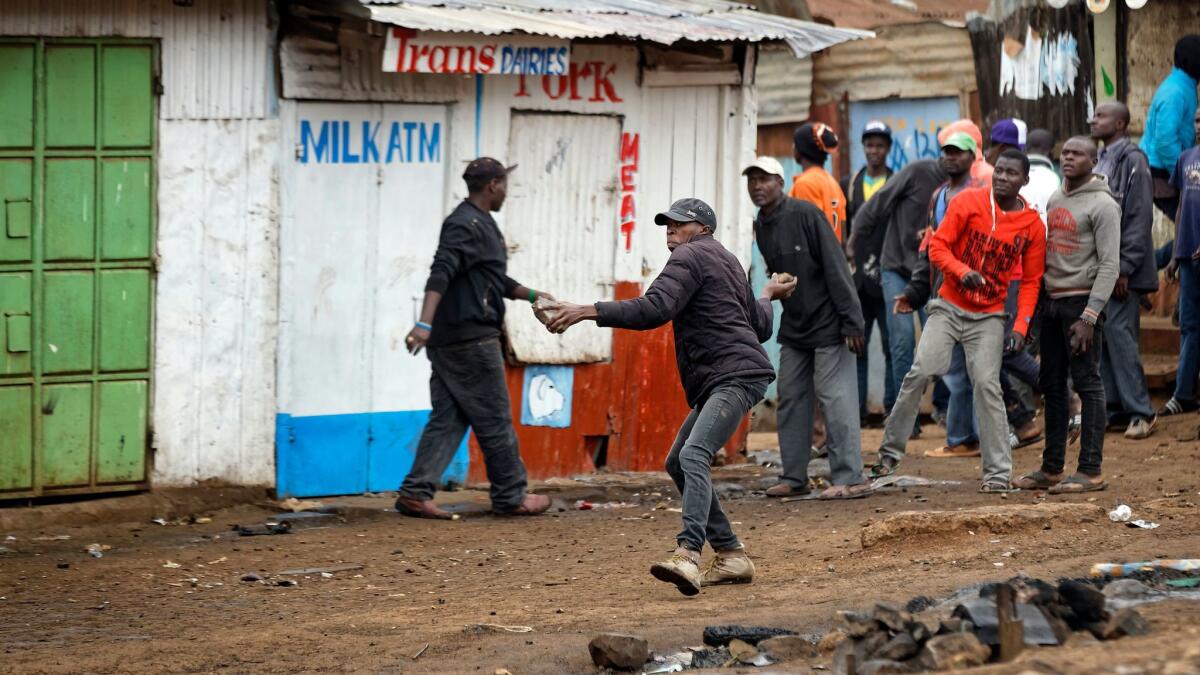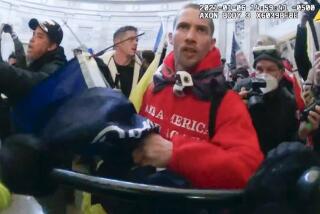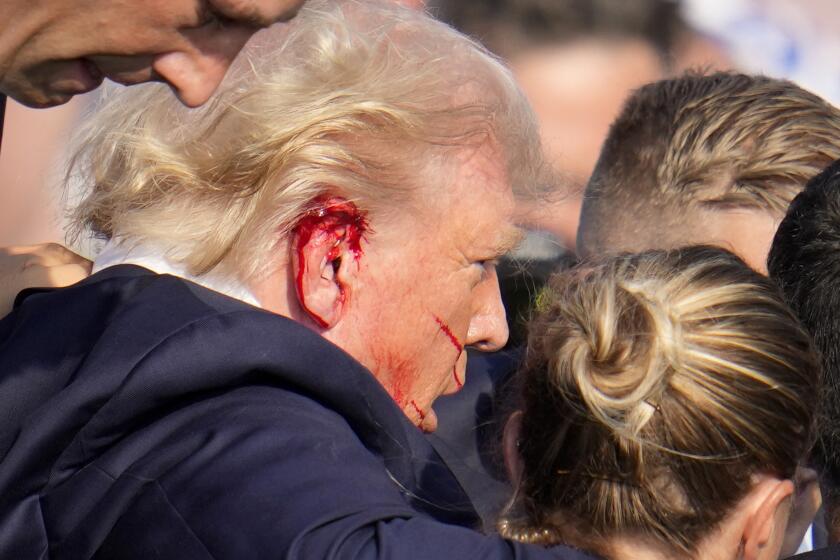An American working for the Kenyan opposition describes his harrowing abduction and deportation

John Phillips, a Washington-based election consultant, had been working with Kenya’s opposition during a tense election when he was seized by a dozen plainclothes police Friday night, just days after the murder and torture of a key election official.
The agents, who did not identify themselves but claimed to be acting on the orders of the country’s leadership, dragged Phillips, founder and chief executive of Aristotle Inc., from his apartment, bundled him into the back of a hatchback car and sped off. A colleague, Canadian Andreas Katsouris, was arrested at the same time and placed in the back seat of another car, which sped off in another direction.
Kenyan Interior Ministry spokesman Mwenda Njoka confirmed the deportation of Phillips and Katsouris on the grounds they breached the conditions of their visa.
From his place in the car, Phillips was able to peer over the back seat. What he saw terrified him.
Four plainclothes police were in the car, all armed with pistols, and one of them passed a machine gun from the front seat to the back. He saw a piece of rope and a military-style helmet. One of the men was playing a video on his phone that depicted torture and killings.
Phillips wondered if the man was replaying footage of past killings and torture that the group had carried out, in a country where political figures and whistle-blowers are sometimes slain.
His mind was racing. Perhaps the man could even be watching video of the killings of Chris Msando, the Independent Electoral and Boundaries Commission official responsible for information technology and data transmission, and a female companion. Both had been abducted and strangled to death about a week earlier.
In one scene playing, he saw a naked body being dragged behind a car.
The police agents drove the car to a rural area, and at one point turned down a quiet road.
“What was frightening was that they pulled down a side road. I thought, ‘This is it. They’re going to shoot me and dump my body.’”
Phillips was employed by the Kenyan opposition coalition, the National Super Alliance, and its leader and presidential candidate, Raila Odinga, to advise measures to ensure a transparent election and a fair vote count. It helped the opposition set up a system to conduct its own election tally that could be used to compare with the official tally.
The treatment Phillips received and the seizure of his laptop were unusual for a visa matter. Phillips and Katsouris had arrived on a tourist visa and applied for a business visa while in the country.
“We were told that the decision to abduct us came from the top, from Kenyatta or Ruto,” Phillips said, referring to President Uhuru Kenyatta and his deputy William Ruto. “We’d been invited by … Raila Odinga to work on election transparency and campaign management.”
Njoka, the Interior Ministry spokesman, said the order did not come from Kenyatta or Odinga but was made by Interior Minister Fred Matiang’i. He had no details about Phillips’ seizure.
“I don’t have the details as to whether they were taken straight to the airport or whether they were delayed. There could have been a traffic jam or something,” Njoka said.
The deportation of the consultants comes amid a sensitive election in a nation with a history of flawed votes, disputed results and ethnic violence. In 2008, up to 1,500 people died when ethnic violence flared after the disputed 2007 election.
Phillips and Katsouris had been assisting Odinga for about two months. Like opposition officials, they were occasionally tailed. Around 8 p.m. Friday, some dozen men burst into Phillips’ apartment. Katsouris was seized on his way to dinner.
“There was a lot of shouting. I was saying, ‘Who are you?’ and ‘Get out,’ and I demanded to speak to the U.S. embassy.”
They grabbed his laptop, handcuffed him, lifted him up, bundled him downstairs and put him in the back seat of a car.
“Then they said, ‘We are doing this the Kenyan way,’ and took me out and tossed me into what they called the boot, or the trunk.”
That same night, an opposition election tally center was raided by masked men and computers were seized. The government and police have denied any raid on the center.
Phillips was driven around Nairobi for around three and a half or four hours. He had no way to contact the American embassy and did not know if help would ever come.
“I kept demanding to speak to the U.S. embassy. I demanded to know where they were taking me.
“My main concern was that this was some kind of rogue group. I didn’t know if I was going to meet the same fate as Chris,” he said, referring to the murdered election official. When the car pulled off the road, he was convinced he would be killed, but he was so charged with rage and adrenaline, he was not thinking about fear.
He wondered if he would be able to seize a chance to escape, or at least to grab a gun and take one of the agents out with him. But the car pulled out of the side road, and some time later stopped at a gas station.
“It seems that at some point the people who’d taken us had second thoughts or were given orders to take us to the airport,” he said.
At the gas station, Phillips was transferred from the trunk of the hatchback to the back seat of a van, with 12 or 13 armed men present. Some time later, around midnight, Phillips was taken to the airport and put into a cell.
The next morning he was moved to a guarded room upstairs in the airport, where he met Katsouris and officials from the American and Canadian embassies and the FBI. Late Saturday, he and Katsouris were deported.
During the long wait at the airport, the pair were guarded by different officials. As they waited, a television news station broadcast an opposition rally, where opposition figures complained about the arrests of the Aristotle team.
Phillips has worked in Afghanistan, Ukraine, Venezuela, Yemen and other countries, consulting on elections. He offers advice on campaign messaging and how to ensure election transparency and fairness.
The ordeal, worse than anything he has experienced anywhere else, left Phillips with a bitter taste of Kenya’s often rough-and-tumble politics.
“What the Kenyan authorities have shown us is that an authoritarian regime masquerading as a democracy is still an authoritarian regime.”
Kenyan media cited unnamed government sources who said the men were deported because they did not have work permits and were “assisting the opposition to engineer a regime change.”
Phillips said he and his colleague were never told why they were seized or deported, or why their laptops were taken.
Twitter: @RobynDixon_LAT
More to Read
Sign up for Essential California
The most important California stories and recommendations in your inbox every morning.
You may occasionally receive promotional content from the Los Angeles Times.





